“For many of us, this is personal”, Scotland’s political leaders heard at a long-awaited political showdown on the future of the crucial energy industry in Aberdeen.
The sector does after all support more than 84,000 jobs in the north-east and John Swinney, Anas Sarwar and Douglas Ross were left in no doubt to its impact.
In the city labeled the oil capital of Europe, industry leaders put Scotland’s political leaders on the spot over their energy plans.
There was clear concern around the future of North Sea jobs, and warnings windfall tax plans could cost investment.
Windfall tax anger
Martin Copeland, CFO of UK-based oil and gas firm Serica Energy, said Labour’s plans to extend and increase the levy, and the Tories move to extend it by a year, seem “designed to kill off the investment needed to keep the North Sea taps flowing”.
Mr Sarwar, Scottish Labour leader, said his party wants to build a “genuine partnership” with the industry, even if there are disagreements over the tax.
He said the party’s green prosperity plan would benefit the economy of the north-east.
But leader of the Scottish Tories, Douglas Ross, said he “agreed with the criticism” of Conservative policy, and had “fought hard” against his party’s decision.
He said: “The one-year extension (to 2029) is the wrong approach.”
And SNP leader Mr Swinney said while there “was a case” for the energy profits levy, this should not be extended beyond March 2028 or increased.
He said: “I think it goes too far. I think it tips the balance of investment decision making. And some of those investment decisions will ultimately have an effect on many people in this sector to invest in renewables.”
Safeguarding jobs
Edward Obi, from HR Hub Plus Limited, said the North Sea sector supports around 200,000 jobs in the UK and is “crucial” to the economy.
He asked the political leaders to outline how they would balance the transition to renewables while also safeguarding those jobs.
Mr Ross hit out at the “continued negativity” against the oil and gas sector, which he said is turning people off working in the North Sea.
He claimed the SNP, if it does back a presumption against oil and gas licences in its delayed energy strategy, and Labour, with its plans for no new licences, would force oil and gas workers to go overseas
But beyond suggesting those jobs are protected, he failed to offer many ideas for how that shift to renewables will happen.
Mr Sarwar said the next government has to work “in partnership” with the industry to attract investment – including through GB Energy.
This is Labour’s plan for a publicly-owned energy generation firm.
While he said Aberdeen has a “strong case” for the headquarters to be based, he wouldn’t be drawn further, and claimed the decision hadn’t been made.
Mr Swinney said there has to be public sector investment in supporting the industry to make the transition it has to make, like the North Sea Transition Fund.
Mr Ross and Mr Swinney had some tense exchanges, perhaps a consequence of the two parties going head to head across the north-east.
The Scottish Conservative chief was keen to emphasise the SNP’s unclear stance around new oil and gas licences and put Mr Swinney on the spot.
Asked to clarify his stance, the SNP leader said: “Any new oil and gas licence has got to be considered against a climate compatibility test.”
The debate rehearsed many of the talking points we’ve heard from the main political parties during the election campaign so far.
But now politicians will come away with a sense that industry is losing patience with the soundbites and want them to get on with delivering on their promises.
Read more: Who are my local candidates in Aberdeen, Aberdeenshire, Moray, Highlands and Islands?
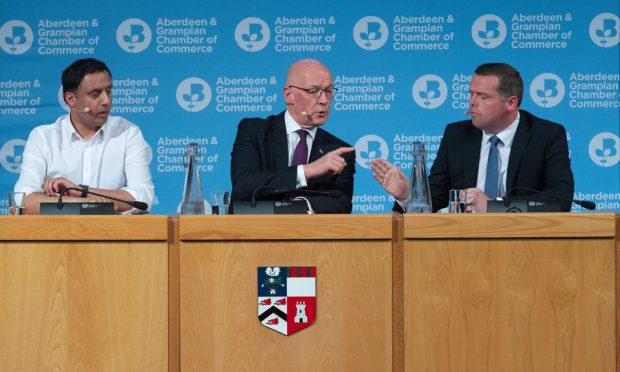
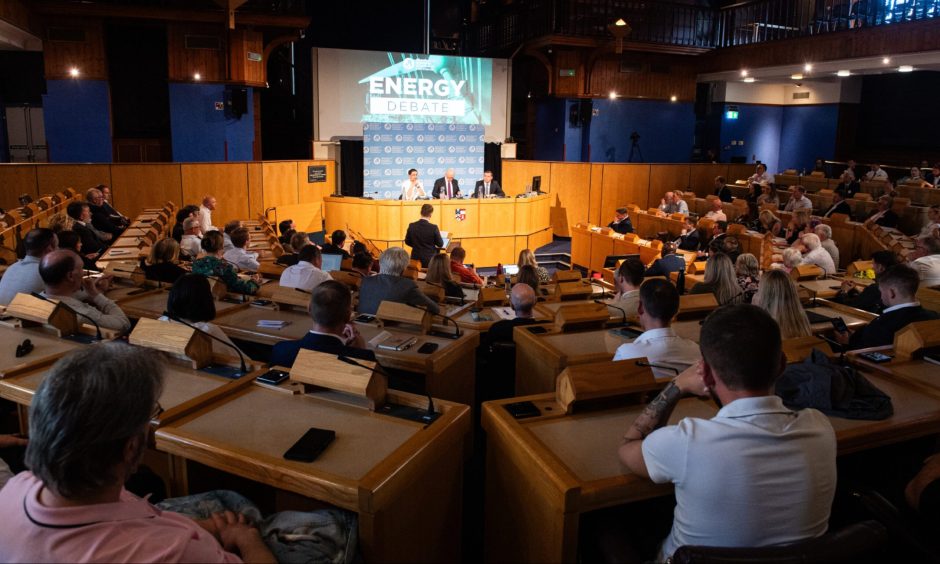
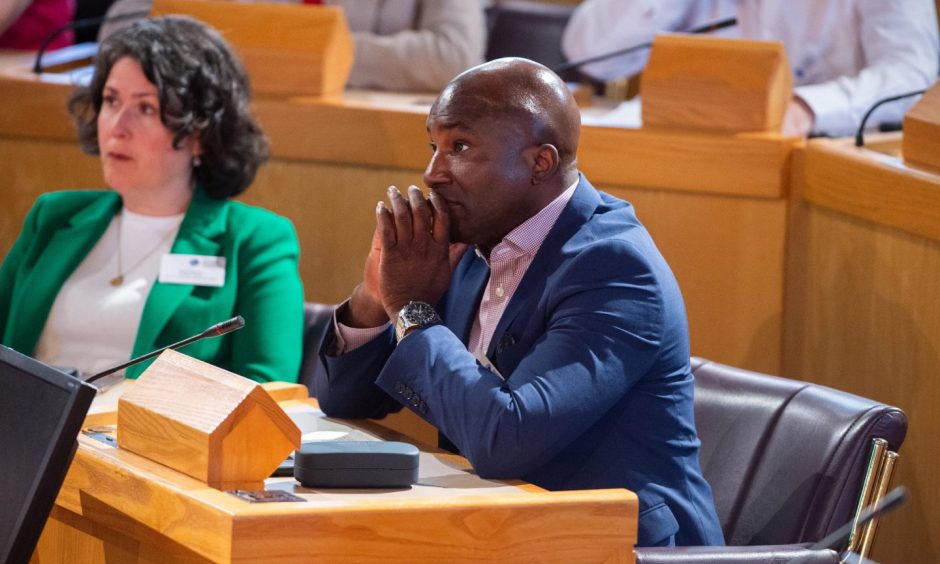
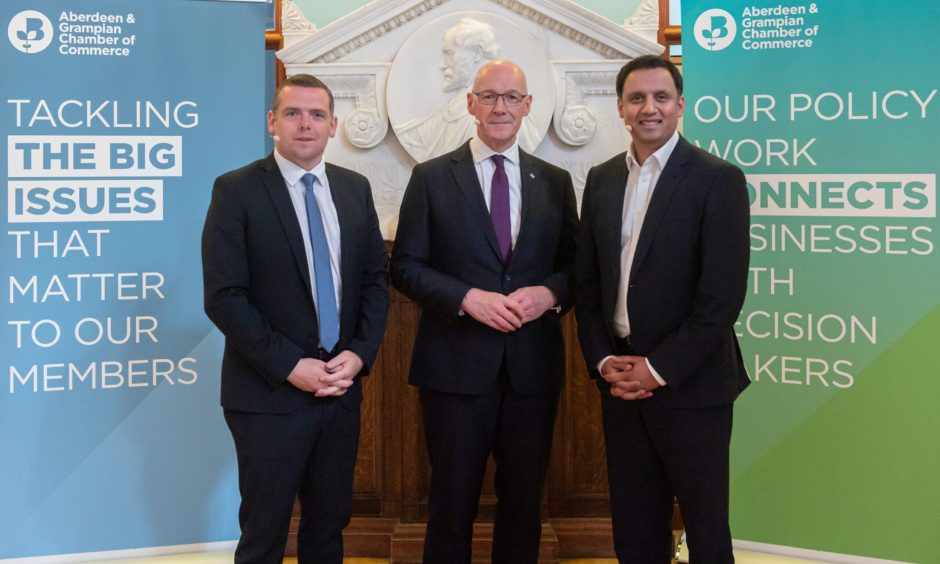
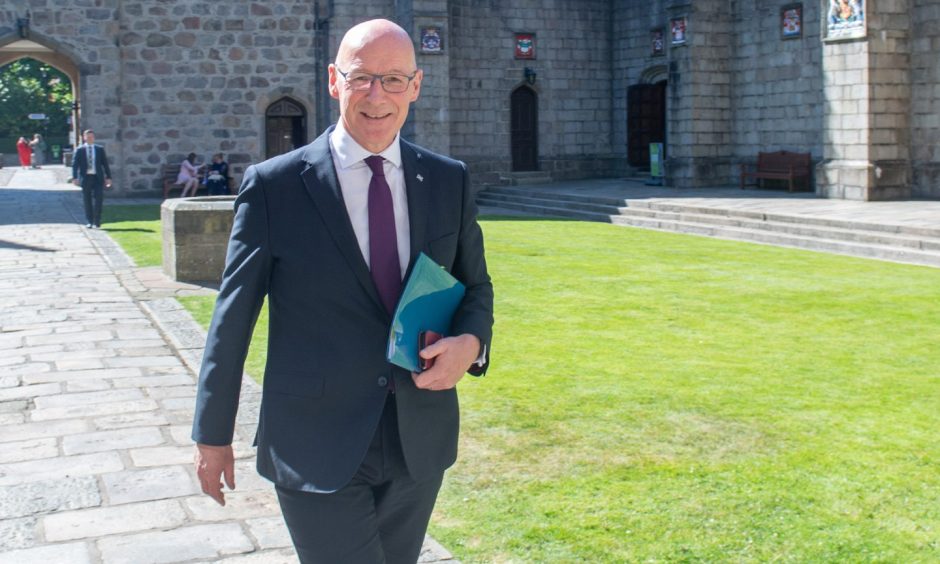
Conversation